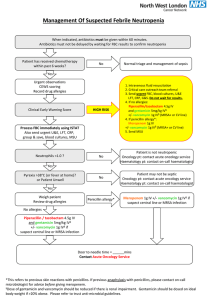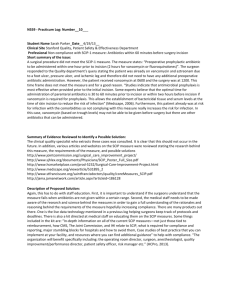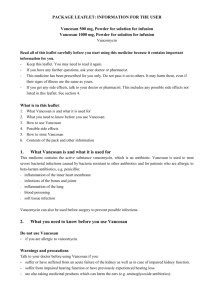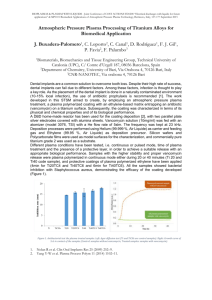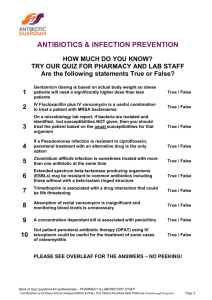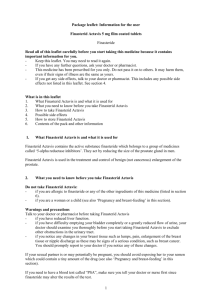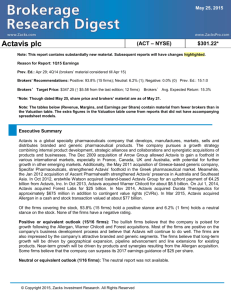Vancomycin Actavis, capsule hard ENG
advertisement
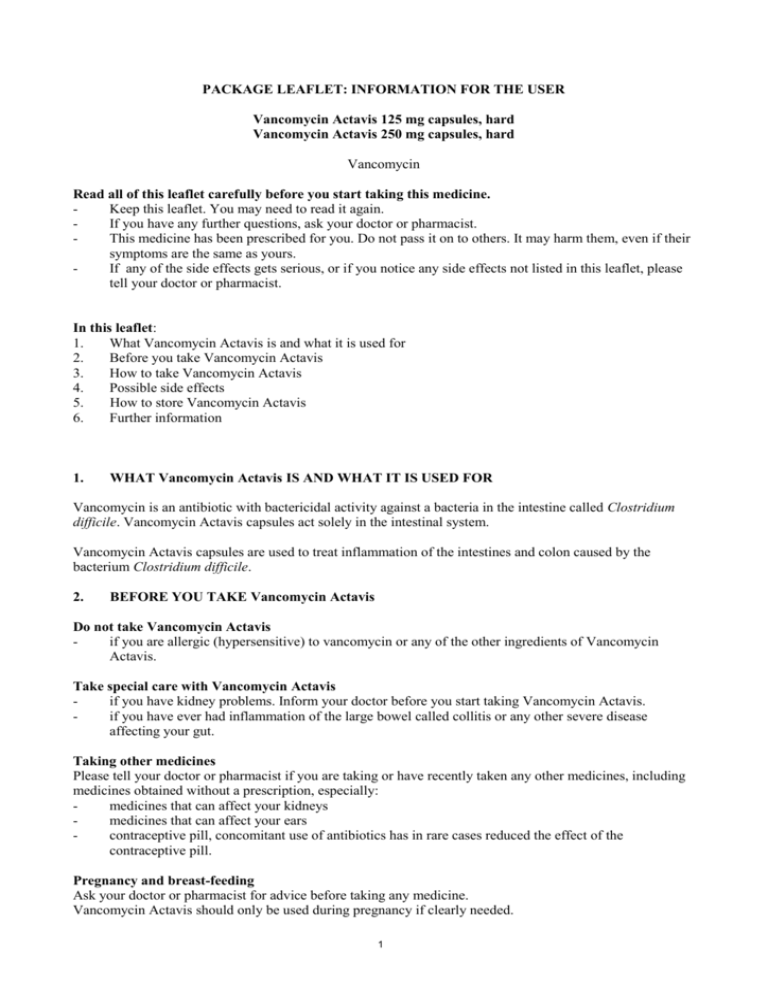
PACKAGE LEAFLET: INFORMATION FOR THE USER
Vancomycin Actavis 125 mg capsules, hard
Vancomycin Actavis 250 mg capsules, hard
Vancomycin
Read all of this leaflet carefully before you start taking this medicine.
Keep this leaflet. You may need to read it again.
If you have any further questions, ask your doctor or pharmacist.
This medicine has been prescribed for you. Do not pass it on to others. It may harm them, even if their
symptoms are the same as yours.
If any of the side effects gets serious, or if you notice any side effects not listed in this leaflet, please
tell your doctor or pharmacist.
In this leaflet:
1.
What Vancomycin Actavis is and what it is used for
2.
Before you take Vancomycin Actavis
3.
How to take Vancomycin Actavis
4.
Possible side effects
5.
How to store Vancomycin Actavis
6.
Further information
1.
WHAT Vancomycin Actavis IS AND WHAT IT IS USED FOR
Vancomycin is an antibiotic with bactericidal activity against a bacteria in the intestine called Clostridium
difficile. Vancomycin Actavis capsules act solely in the intestinal system.
Vancomycin Actavis capsules are used to treat inflammation of the intestines and colon caused by the
bacterium Clostridium difficile.
2.
BEFORE YOU TAKE Vancomycin Actavis
Do not take Vancomycin Actavis
if you are allergic (hypersensitive) to vancomycin or any of the other ingredients of Vancomycin
Actavis.
Take special care with Vancomycin Actavis
if you have kidney problems. Inform your doctor before you start taking Vancomycin Actavis.
if you have ever had inflammation of the large bowel called collitis or any other severe disease
affecting your gut.
Taking other medicines
Please tell your doctor or pharmacist if you are taking or have recently taken any other medicines, including
medicines obtained without a prescription, especially:
medicines that can affect your kidneys
medicines that can affect your ears
contraceptive pill, concomitant use of antibiotics has in rare cases reduced the effect of the
contraceptive pill.
Pregnancy and breast-feeding
Ask your doctor or pharmacist for advice before taking any medicine.
Vancomycin Actavis should only be used during pregnancy if clearly needed.
1
Vancomycin passes into the breastmilk. If you are breast-feeding, discuss with your doctor before you start
treatment with Vancomycin Actavis.
Driving and using machines
Rarely vancomycin causes vertigo and dizziness, if affected you should not drive or operate machinery.
3.
HOW TO TAKE Vancomycin Actavis
Always take Vancomycin Actavis exactly as your doctor has told you. You should check with your doctor or
pharmacist if you are not sure.
For adults and adolescents
The usual dose is 1 capsule of 125 mg 4 times a day for 7 to 10 days.
For more severe infections and recurrences the dose can be increased up to 500 mg four times a day for 1014 days.
For children aged 12 years or less
The usual dose is 30-40 mg/kg/day taken in 3 to 4 divided doses a day for 7 to 10 days. The daily dose
should not exceed 2 g. The dose is determined by your childs doctor, who adjusts it individually to your
child.
If you take more Vancomycin Actavis than you should
If you have taken too many Vancomycin Actavis capsules please contact your doctor or the nearest hospital
for advice as soon as possible.
If you forget to take Vancomycin Actavis
Take the capsule as soon as you remember it.
Do not take a double dose to make up for a forgotten dose.
If you stop taking Vancomycin Actavis
Do not stop treatment with Vancomycin Actavis without discussing it first with your doctor.
If you have any further questions on the use of this product, ask your doctor or pharmacist.
4.
POSSIBLE SIDE EFFECTS
Like all medicines, Vancomycin Actavis can cause side effects, although not everybody gets them.
If you notice any of the following serious side effects, stop taking /…/ and contact a doctor
immediately:
Reddening of the skin with blisters or peeling and may be associated with a high fever and joint pains.
There may also be severe blisters and bleeding in the lips, eyes, mouth, nose and genitals. This could
be Stevens-Johnson syndrome or toxic epidermal necrolysis. This effect is rare, affecting 1 to 10 users
in 10,000.
Swelling of the face, lips or throat which make it difficult to swallow or breathe, as well as itching and
rashes. This could be a sign of a severe allergic reaction. This effect is rare, affecting 1 to 10 users in
10,000.
Chest pain or abnormal heartbeat. This could possibly lead to cardiac arrest (sudden cessation of
heartbeat). This effect is very rare, affecting less than 1 user in 10,000.
-
-
skin rash with fever and swollen glands and increase of some white blood cells (eosinophilia) (DRESS
syndrome). This effects frequency is not known and cannot be estimated from the available data.
/…/ may cause a reduction in the number of white blood cells and your resistance to infection may be
2
decreased. If you experience an infection with symptoms such as fever and serious deterioration of
your general condition, or fever with local infection symptoms such as sore throat/pharynx/mouth or
urinary problems you should see your doctor immediately. A blood test will be taken to check possible
reduction of white blood cells (agranulocytosis). It is important to inform your doctor about your
medicine.
Other side effects:
Uncommon (affects 1 to 10 users in 1,000)
hearing loss
feeling sick (nausea)
rash, itching
fever
Rare (affects 1 to 10 users in 10,000)
reduction of white blood cells (leukopenia, agranulocytosis), reduction of platelets in the blood
(thrombocytopenia), increase in white blood cells (eosinophilia)
ringing or buzzing in the ears
feeling dizzy, especially when you stand up suddenly (this is caused by a drop in blood pressure),
blood vessel inflammation (vasculitis)
shortness of breath, high pitched wheezing sound when breathing (stridor)
redness on the upper body, itchy skin rash
muscle cramps and pains in the chest and back
kidney failure, increase of creatinine in the blood, inflammation of tubes in the kidney
chills, dizziness
Very rare (affects less than 1 user in 10,000)
infection of the colon (pseudomembranous enterocolitis), cardiac arrest (sudden cessation of heartbeat)
If any of the side effects gets serious, or if you notice any side effects not listed in this leaflet, please tell
your doctor or pharmacist.
5.
HOW TO STORE Vancomycin Actavis
Keep out of the reach and sight of children.
Do not store above 25°C.
Do not use Vancomycin Actavis after the expiry date which is stated on the carton and blister after EXP. The
expiry date refers to the last day of that month.
Medicines should not be disposed of via wastewater or household waste. Ask your pharmacist how to
dispose of medicines no longer required. These measures will help to protect the environment.
6.
FURTHER INFORMATION
What Vancomycin Actavis contains
-
-
The active substance is vancomycin (as hydrochloride). Each 125 mg hard capsule contains 125 mg
vancomycin (as hydrochloride). Each 250 mg hard capsule contains 250 mg vancomycin (as
hydrochloride)
The other ingredients are: Capsule content: Macrogol 6000;
Capsule cap and body: Titanium Dioxide (E 171), Iron oxide Black (E 172), Iron oxide Yellow (E
172), Iron oxide Red (E 172), Gelatin.
3
What Vancomycin Actavis looks like and contents of the pack
125 mg capsule: Grey/pink 18.1 mm hard capsule containing white to off white congealed liquid mixture as
solid mass.
250 mg capsule: Brown 21.6 mm hard capsule containing white to off white congealed liquid mixture as
solid mass.
Blister packs of 28 and 30 capsules.
Marketing Authorisation Holder and Manufacturer
<[To be completed nationally]>
{Name and address}
<{tel}>
<{fax}>
<{e-mail}>
This leaflet was last approved in 2013-01-04
4

